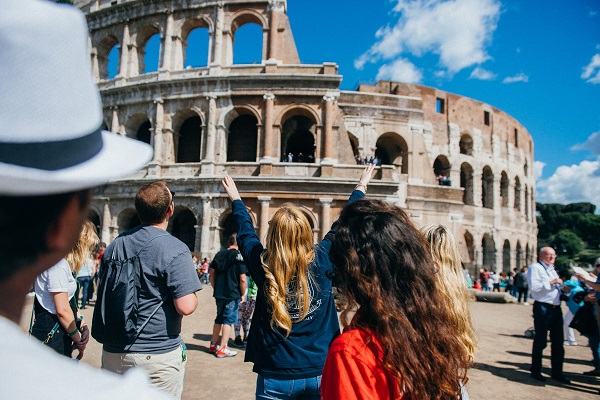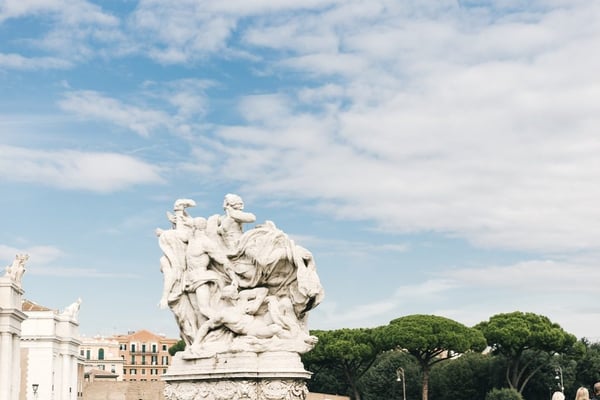

Rome is widely regarded as the cultural capital of the world. The city is known for its history, art, and was once home to some of the world’s most significant cultural icons including Michelangelo and Leonardo da Vinci.
If you’re tempted to study humanities, then Rome could make the perfect location for your education. Find inspiration just outside your doorstep and step out of your textbook and see historic masterpieces face to face.
John Cabot University offers a diverse range of humanities courses for students. Read about some of the most unique on offer!

Consider Taking “Literature and Society in Ancient Rome” When You Study Abroad in Rome
Studying literature can open our eyes to another world. Reading literature from Ancient Rome can help students better understand that society and its impact on the world today. Ancient Rome was known for its comedy, epics, poetry, and satire, and students taking this course can expect to dive into this fascinating world.
The Golden Age of Roman poetry, which lasted from 70 BCE – 14 CE, produced iconic writers like Virgil, Horace, Catallus, and Ovid, which still have an important place on university curriculum today. Ovid’s Metamorphoses inspired authors like Chaucer, Milton, Dante, and Shakespeare. Shakespeare in particular was fascinated by the Ancient Romans, as evidenced by his plays Julius Caesar and Antony and Cleopatra. If you’re interested in diving into some of Ancient Rome’s most fascinating and impactful texts, consider taking this class when you study in Rome!
Learn About the History of Wine with “Wine and the Culture of Drinking in Classical Antiquity”
Italy is the largest producer of wine in the world, and there is arguably no place better to study abroad and learn about its history. In Ancient Rome, wine was a daily necessity and would be consumed with all meals throughout the day. This ancient wine also had a much higher alcohol content than wine today, so it was served mixed with hot water. It was often flavored with herbs and spices, and would have likely tasted similar to a mulled wine today.
Students will learn about the history of wine by studying the works of Columella, Horace, Catallus, Palladius, Pliny, Varro, and Virgil. Their works are a record of the ancient traditions around wine, including the various banquets that were hosted to show off wealth and prestige.
What Did The Ancient Romans Know About Love? Find Out in “Sexuality, Eroticism, and Gender in Myth and Literature of Greece and Rome”
Walk through Rome today and you can’t help but admit the city inspires romance. With its winding streets, beautiful architecture, and hidden bars, it’s fascinating to imagine how it would have been in ancient times.
Sexuality, Eroticism, and Gender in Myth and Literature of Greece and Rome will give international students in Italy the opportunity to delve deeper into the inner workings of Ancient Greek and Roman societies. This multidisciplinary course incorporates elements of philosophy, literature, history, art, and archaeology.
Poetry and literature exploring love was very popular during antiquity. Students will be encouraged to explore the theme through ancient literature, philosophy, and essays, including the works of Plautus, Valerius Maximus, Cicero, Tacitus, and Tertullian.
The course also encourages students to examine gender roles. Ancient Rome was a patriarchal society, and women’s main responsibilities were in the home raising children. This gender divide is evident in the literature, art, and history of Ancient Rome. Students will be able to analyze how this affected society and how it compares to today.
Are you interested in studying at English speaking universities in Italy?
Contact John Cabot University to discover more!




